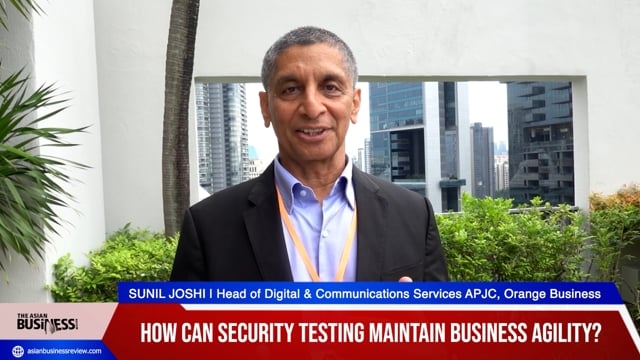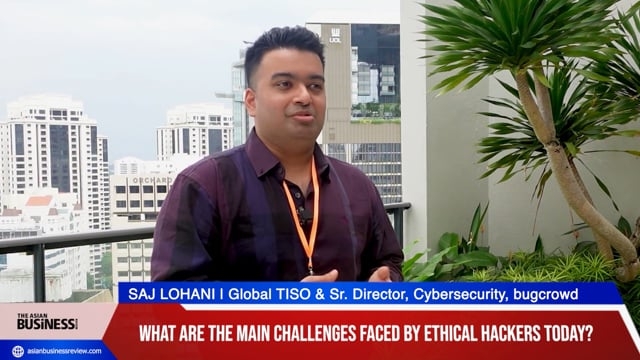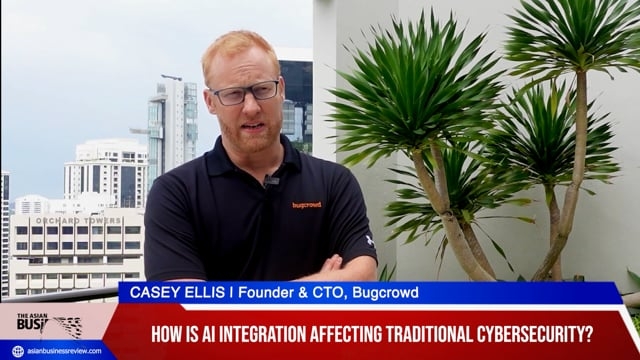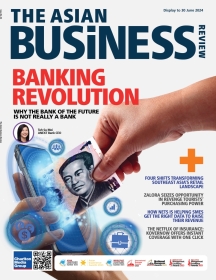
BDO UAE’s Associate Director shares key technological trends in the Middle East
Amit Tenglikar is one of the judges at the Middle East Technology Excellence Awards.
As the Associate Director in BDO UAE’s Technology Advisory Services practice, Amit Tenglikar, has more than 14 years of experience in providing information technology (IT), cybersecurity, and data security internal audit services to varied clients across the Middle East, India and Southeast Asia.
He consults clients on IT risk management, cybersecurity, information governance, and data security; and provides advice to resolve complex technology and cybersecurity challenges. He also advises clients on best practices for handling information throughout its life cycle, from creation or collection through disposition.
Amit has extensive experience in working with organisations’ internal audit teams and audit risk committees, to deliver highly complex cybersecurity audit and assurance engagements to clients across UAE.
Joining the honourable panel of judges at the inaugural Middle East Technology Excellence Awards, Amit advises tech firms in the region on how they can keep themselves and their clients safe. He also shares his expectations for the technology industry in the Middle East in the next decade.
What are the upcoming tech trends that you can see Middle Eastern businesses will benefit from the most?
Collaborative Technology
Collaborative technology has emerged as a life saviour during the COVID-19 pandemic for both large and small businesses. It has helped most businesses and their teams to collaborate seamlessly, irrespective of whether the teams were working from offices, client’s place, or home. It has helped the businesses in multiple ways including conducting work remotely by video conferences, sharing documents across multiple stakeholders, planning work tasks, and monitoring real-time collaboration on content writing and software development, finalizing contracts using digital signatures, etc. To put it in numbers, take for example Microsoft Teams, a proprietary business communication platform by Microsoft that offers workspace chat and video conferencing, file storage, and application integration. It had 32 million daily active users at the beginning of the pandemic; and by the end of April 2021, it has 145 million active users.
Collaborative technologies have not only been used more by the tech industry, but it has been rapidly adopted by many other industries including healthcare and education sectors. It has made a huge difference in people’s lives and helped them cope with the effects of the pandemic by providing a way to safely conduct business from home.
Automation
As we move ahead into Fourth Industrial Revolution (4IR or Industry 4.0), automation has taken centre stage, concepts such as hyperautomation and intelligent automation, which complements robotic process automation are making advances in various industries. Businesses in the Middle East are automating most of the repeatable processes—wherever possible, thereby improving efficiency and productivity, and reducing human errors. For example, be it insurance claims processing or payroll processing, or be it employee onboarding or invoice payment processing, most of these repeatable processes are the ones where businesses are implementing automation. Further, some businesses are already into intelligent automation and hyperautomation, Gartner predicts that, by 2022, 80% of RPA-centric automation implementations will derive their value from complementary technologies including machine learning, process mining, ingestion engine, analytics, etc.
Automation has not only helped businesses of all sizes to be more efficient but also has provided an opportunity for businesses to utilize their valuable human resources in more creative and value-driven activities.
Business Intelligence
Decision Making can save or sink the business. This concept has rightly been understood by middle eastern businesses. There is a trend to digitalise most of the information and intelligence which businesses and their employees hold and bring out value through this combined intelligence by applying various data models. Previously, we used to say, “Data is the new oil”, but we have moved on from this concept. Now, “data” is no longer compared to just oil; it is the most valuable resource in the world and gains more significance as it accumulates and provides valuable insights.
Business intelligence (BI) can be summarized as a combination of two powerful techniques “Data Analytics” and “Data Visualisation”, which are used effectively to derive value out of data. Business needs authentic, current, and predictive perspectives on business operations and BI can provide the same. It acts as a powerful tool for management and enables organizations to make swift, smart, and informed decisions. It has also helped businesses to determine the improvement areas, optimize efficiency, save money, and deliver growth.
What is your advice to businesses in the region when it comes to keeping abreast with the latest technological solutions?
The Middle East, especially the UAE, has been at the forefront of promoting and adopting innovation and the latest technologies. In this hyper-connected world, there are many ways to keep one abreast with the latest technological solutions.
First and foremost, Expo 2020 which is happening from 1 October 2021 until 31 March 2022 in Dubai, UAE, a lot of effort was made to organize the expo, which has a separate experience planned for businesses under “Innovation and Technology” to understand and experience latest technological solutions which have lots of pavilions and sessions planned for everyone.
Second, businesses can attend webinars, roundtables, seminars, and conferences to gain knowledge on the latest trends in tech. These events usually focus on tech relevant to local requirements whilst bringing expertise from a global perspective. A lot of institutions and organisations also come up with these events for their members, such as ACCA and IIA. Also, businesses in UAE are aware of GITEX Technology Week which showcases the latest technology trends from global leaders and startups. At least 50% of these events are free to participate and, in some cases, these can be attended by invitation from the organizers and sponsors who are usually more than happy to extend a complimentary pass.
Last but not the least, the Internet. We all know how powerful it can be. We can have updates on the latest trends at our fingertips just by searching it on Google or any other search engine. Also, businesses can subscribe to firms that come up with intuitive articles and white papers which can provide them with both global and middle eastern perspectives. Further, subscribing to RSS feeds, Google alerts, blogs, and podcasts can provide a wealth of information.
How has the pandemic affected the tech industry in the region?
The pandemic has affected the tech industry in both good and bad ways. For example, delays and shortage of tech hardware raw materials due to lockdowns in certain countries affected the announcements of new tech products and delivery of existing tech products, such as mobile phones and laptops. On other hand, the lockdown created an opportunity for the tech industry to drive innovation and bring/update tech products. As mentioned above, in the example of Microsoft Teams, it has worked out well for some tech industries. If some estimates are to be believed, digital transformation was advanced by up to seven years in 2020. Some of the small and medium-sized enterprises and businesses that were not welcoming to new technology have realized the significance of adopting collaborative and innovative technologies for their respective businesses for sustainability. Either good or bad, the pandemic has affected all of us and it’s no longer possible for businesses to operate in a way they used to operate pre-lockdown.
What is your favourite memory/experience in working with people from the Middle East?
I have been here in the Middle East for the past six years and have been lucky enough to work with a number of people who are my colleagues, clients, and friends. It would be a difficult task to single out one memory/experience. However, there are a couple of experiences that I would like to share. Starting from my first day of landing in the UAE, I was flying from India. It was a hot day and upon landing, I was received by my colleague at the airport with a cab, who took me to my hotel. On our way to the hotel, I received a call from my CEO, BDO UAE - who inquired about my travel and apologized for not being able to receive me in person as he was struck by some unforeseen work. He made sure I got my hamper filled with goodies and chocolates – that was my first experience on my arrival in the UAE. Another was an experience with one of our Emirati clients, who on the first day of an advisory engagement, greeted me with an Indian sweet – laddu from well-known Indian Chef from Sanjeev Kapoor’s boutique hotel. He made sure I felt comfortable and showed me around their office. These welcoming gestures by my CEO and client collectively portray the UAE’s culture in welcoming people and making them comfortable. All in all, it has been a fulfilling journey, so far, and I look forward to more and more such experiences.
How has the Middle East tech industry developed in the past few years? Where do you see technology in the Middle East in the next decade?
As I mentioned previously, the Middle East, in particular the UAE, has been at the forefront of promoting innovation and embracing the latest technologies. It has come a long way from the analog era to digital and now to hyperconnected era. Businesses have moved from hard copies to digital copies, and in many cases, paperless offices. With the middle eastern local technology companies now providing global services (such as Cloud services) locally, who understand the middle eastern culture and its people, technology adoption has become much easier for businesses. In the next decade, the Middle East and UAE will be leading and adopting emerging technologies more and more, including artificial intelligence, blockchain, robotics, 5G, 3D-4D printing, driverless cars, etc. and paving the way for a truly connected world where the human aspect of tech would be given more importance.
Many experts are espousing digital transformation as the key action that will keep businesses afloat during and after the pandemic. But is there a possibility that it can also be a hindrance—much less an added problem—to their survival and progress?
COVID-19 pandemic has proved without a doubt that digital transformation can only be a business-enabler and not be a hindrance or a problem. Of course, digital transformation can become a problem if not thought and executed well. In my view, one of the biggest mistakes that businesses can make in a digital transformation journey is not considering the people factor enough in their journey—its people who can make or break the journey of digital transformation of any business. It is necessary to gain the confidence of your people and top executives before you embark on your digital transformation journey. Some other things which can make things difficult in digital transformation are the lack of vision and clear goals, unrealistic expectations, budget constraints, and having no proper team to manage and deliver the transformation. Having said that, digital transformation in itself cannot be a hindrance or a problem for any business including when there are budget constraints. Small scale businesses with limited budgets can start small and seek ways to utilize the Cloud and subscription-based services for their technology requirements, which essentially eliminates a lot of resource requirements to manage and maintain the services and provides the best uptime with decent out of the box security.
Cybersecurity has become a hot issue since the pandemic increased people's reliance on technology. How can tech firms keep themselves and their clients safe?
Cybersecurity has been a concern all along, but with the pandemic, a lot of firms moving to remote working has emerged as one of the top issues which require immediate attention from the their management for conducting business securely and sustainably. To start, technology firms can start with basics to keep themselves and their clients safe, such as:
- Control who has access to your and your client’s data. This should start with identifying assets (hardware + software). An accurate inventory of assets is needed before businesses can take steps to protect them. Once assets are identified, staff accounts should be assessed to ensure they have just enough access to software, settings, online services, and device connectivity functions for them to perform their role which will minimize the potential damage that could be done if an account is misused or stolen. All accounts must be mandated to be secured with multi-factor authentication.
- Implement an effective and timely patch management program for themselves (for tech firms: internal and external devices and services) and their clients. This can go a long way in avoiding any cybersecurity incidents. For many clients, this can be easily managed if they have cloud-based application services where the tech firm would apply patches on cloud infrastructure making the instances secured.
- Conduct vulnerability management and penetration testing on a regular basis. This would act as a watchdog to periodically test your defenses and let you know if there are any weaknesses. Further, tech firms should invest in adopting DevSecOps framework to ensure quality and detail-oriented security software testing starting from the design phase itself, and not as an afterthought. This can effectively detect issues during development and testing phases before it is released to production systems.
- Document a cyber incident response plan and conduct drills. A cyber incident response plan should be documented to address a suspected data breach in a systematic and phased manner. Further, an incident response plan is not worth much if it’s only on paper, it must be put to the test. Conducting security drills and identifying weak spots will go a long way in validating a team’s readiness for a real incident.
- Establish a cybersecurity awareness program for yourself and your clients. Further, guide your clients on recommended and best practices to be followed when configuring and using the software you have developed. If possible, ensure that minimum standards are made mandatory for the usage of your software. For example usage of multi-factor authentication to access the software services.






















 Advertise
Advertise








